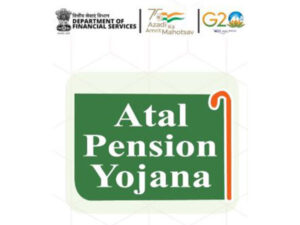Income tax department advises taxpayers to carefully review their foreign income, assets in ITR
New Delhi [India], November 24 (ANI): The Central Board of Direct Taxes (CBDT) has advised all taxpayers to carefully review their foreign income and assets and report them accurately in their Income Tax Returns (ITRs).
Income Tax department in its special edition of ‘Samvad’ raised awareness on proper disclosure of foreign assets and income by taxpayers. The session aimed to raise awareness among taxpayers about the need to accurately report their foreign income and assets in their Income Tax Returns (ITR).
During the session, Shashi Bhushan Shukla, Commissioner (Investigation), CBDT explained that all Indian residents are required to declare their foreign assets, which can include real estate, bank accounts, shares, debentures, insurance policies, or any other financial assets where they are the beneficial owner.
He said that Income Tax Department has provided a detailed step-by-step guide in the ITR form, specifically in the “Foreign Assets and Income” schedule, where taxpayers can report their foreign income and assets.
He emphasised that this rule applies specifically to resident taxpayers, as defined under Section 6 of the Income Tax Act.
Defining the resident taxpayers, Shukla clarified that a resident taxpayer is someone who has lived in India for at least 182 days during the previous year or who has stayed in India for 365 days during the previous four years. Taxpayers who do not meet these criteria are either considered non-residents or not ordinarily residents, and they are not required to declare foreign income and assets.
He added that only resident taxpayers need to report their foreign income and assets in their ITR.
The discussion moved towards the common confusion regarding taxpayers who own foreign assets but do not earn any income from them.
Shukla explained that even if a resident taxpayer has a foreign asset, such as property purchased years ago, which does not generate income, they must still declare it in their ITR, regardless of the absence of rental income or interest.
He provided an example of someone who bought property abroad in 2010 but is not earning any income from it. Even in this case, as long as the individual is a resident, they are obligated to declare this property.
Answering about the situation where a taxpayer holds foreign assets, like an investment property or a bank account abroad, but the income generated from these assets is below the taxable limit, Shukla confirmed that every resident taxpayer with foreign assets must report them, regardless of the amount of income generated. Not reporting foreign assets or income can lead to penalties under the Black Money Act, including fines of up to Rs 10 lakh.
Talking about the returning Non-Resident Indians (NRIs) who had foreign assets when they were living abroad, he said that even if these individuals return to India and become residents, they must disclose their foreign assets and income for the years they qualify as residents.
The same rule applies to any foreign citizen who becomes a resident in India, as per Shukla. The requirement to disclose foreign assets applies to both residents and those who transition into residency status.
On discloser of foreign stocks and investments, he informed that that any dividends or capital gains earned from these foreign stocks must be reported in the ITR under the appropriate schedule.
Shukla also touched on the topic of Double Taxation Avoidance Agreements (DTAAs), which India has signed with various countries. These agreements ensure that taxpayers do not end up paying taxes twice on the same income. If foreign taxes have already been deducted on income earned abroad, Indian taxpayers can claim a tax credit under the DTAA to avoid double taxation, he added.
Shukla further highlighted the growing importance of international tax transparency and information exchange. India has signed the Common Reporting Standard (CRS) agreement with over 120 countries to ensure that information about foreign assets and income is shared among countries for tax purposes. This exchange of financial information helps in combating tax evasion and enhancing compliance he added.






